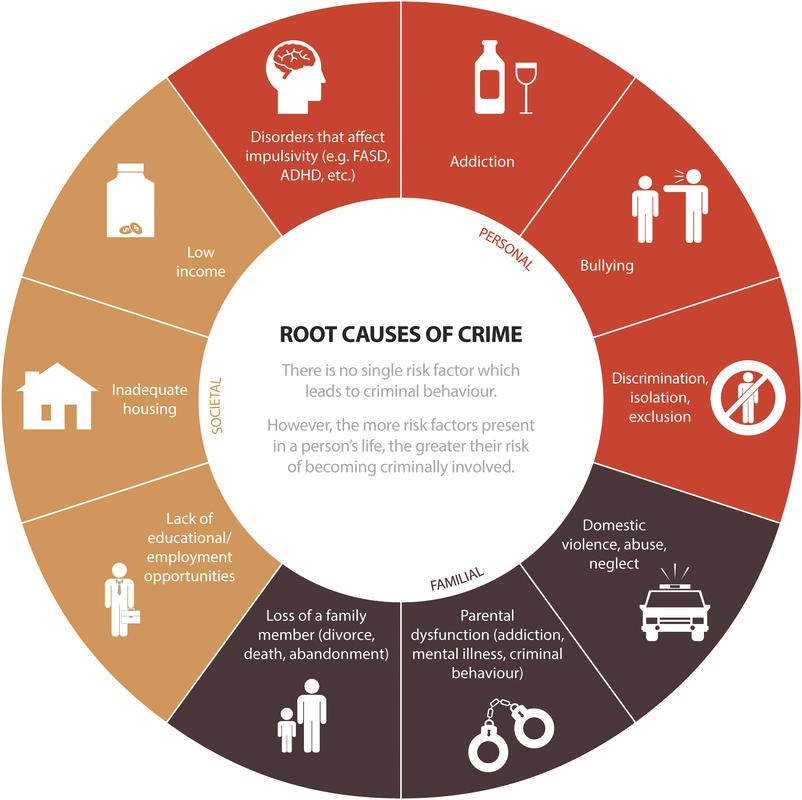|
In 2018, 72% of interactions with Calgary Police were related to disorder (unruly behaviour) and/or vulnerable persons. Another 16% were related to drug use. This means that almost 90% of interactions with Calgary Police are directly related to social issues such as homelessness, poverty, mental health challenges and substance use disorders – often a result of untreated trauma.
Police officers are trained to deal with violence and danger to the public. They are not trained to be trauma counsellors or social workers. Policing is not a preventative measure but rather a reaction to a crime that has already been committed. Black and Indigenous people are disproportionately targeted and impacted by the justice system, including policing. Many don’t feel safe calling police when they’re in danger because the police represent a greater threat to their safety, and possibly their lives. Read more:
Where did the phrase “defund the police” come from?
The concept of defunding police originated with Black activists and can be found as far back as the 1960s. It has gained momentum and credibility today as smartphone cameras and social media have exposed police brutality to a wider audience. Read more:
What does it mean?
Defunding police means reallocating a percentage of that funding to social services that address the root causes of crime, like education, mental health supports, affordable housing, youth programs, accessible transit and employment opportunities. The majority of Calgarians’ tax dollars go towards policing – the single largest line item in the City’s budget at $401 million – while affordable housing and social services receive a measly $42 million. Calgary Police have little accountability as City Council doesn’t require them to specify exactly what they are spending that money on. Police budgets should be capped and transparent so citizens know exactly what their tax dollars are spent on. Government should be involved in deciding what the money is spent on to increase accountability. Read more: Defunding the police in a Canadian context (E-Learning Resource)
Why is it important?
Policing is a foundational example of systemic racism in Canada, meaning that the policies, practices and procedures carried out by police lead to disproportionately negative outcomes for BIPOC. We cannot claim to be a free and equitable society when BIPOC are constantly at risk of brutalization at the hands of those they pay taxes to for protection. Experiencing mental illness, homelessness, poverty and trauma are not crimes. And, if we are truly innocent before proven guilty, using a counterfeit bill should not be a death sentence. Government-mandated collection of race-based data in policing is essential to ensure that police are held accountable for effective and equitable crime prevention. Read more:
Will defunding the police really work?
Yes. Alternative response services already exist in many parts of the world, like Oregon, California and the United Kingdom. Crises are responded to by trained, demilitarized professionals with expertise in de-escalation and compassion so there isn’t fear of further violence. Calgary already has several (currently underfunded) programs that provide successful and cost-effective alternatives to policing, such as:
Permanent supportive housing provided by Alpha House, CJHS and other agencies funded by the Calgary Homeless Foundation (CHF). CHF found that this type of housing decreases interactions with police by 72%,days spent in jail by 84% and court appearances by 59%. Did you know? The City of Edmonton has already voted to redirect $11 million of the police budget to community services.
How can I help advocate for my tax dollars to be reallocated away from police?
Support, participate and donate to defunding movements in your city. Email or call your local politicians to ask them to:
0 Comments
Leave a Reply. |
Archives
January 2024
|

 RSS Feed
RSS Feed
